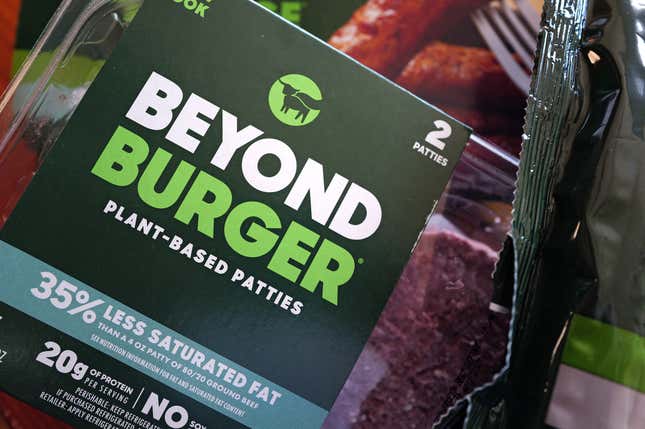
Plant-based company Beyond Meat is struggling to reach even the healthiest of consumers — and it needs to raise cash quickly.
Shares of Beyond Meat fell by 14% in afternoon hours, trading at $7 after the meat substitute company reported dismal first quarter earnings. That decline is in part due to an increase in prices, which it implemented in April after the launch of its new premium burgers.
CEO Ethan Brown said during a call with investors that the company plans to complete the launch its new products by the end of May. The burgers will be offered at Walmart and Target. They will cost more, but will increase the company’s profitability, Brown added.
Beyond Meat could be running a risky bet, as the company has struggled to get ahead of a saturated plant-based market and fading consumer interest. It’s also been burning through cash, according to its earnings report, which noted that the company’s adjusted EBITDA had a loss of $32.9 million during the quarter. Beyond Meat expects that to change as it reduces operating expenses, consolidates its production network and implements pricing changes, Brown told investors during the earnings call.
Those pricing changes are expected to show during the third and fourth quarter, Lubi Kutua, Beyond Meat’s CFO, added to analysts on the call.
Brown said that he “believes 2024 is a pivotal year for change in progress,” but said “macroeconomic issues” including waning consumer demand for plant-based goods, stubborn inflation, and high interest rates could put a dent in those plans.
Even with a 18% sales decline during the first quarter, the California-based company modestly beat Wall Street’s expectations. During the first quarter, it reported revenue of $75.6 million, about $0.72 cents a share. Analysts predicted it would generate $75.2 million, approximately $0.70 cents a share, according to FactSet.
The company expects revenue of $315 million to $345 million for the full year. It expects sales during the second quarter to be in the range of $85 million to $90 million.